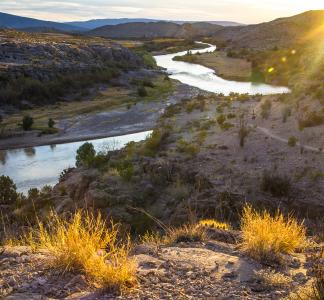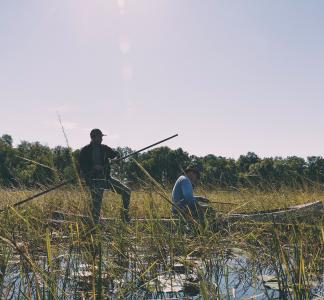Dirty permitting deals must be stopped before even more communities are sacrificed

September 2022 rally against a permitting deal and the Mountain Valley Pipeline in Washington, DC
TWS
Bill would force Mountain Valley Pipeline, expedite other fossil fuel projects
Forty years ago this week, dump trucks rolled into Warren County, NC, to discard cancer-causing polychlorinated biphenyls in the poor, mostly Black farming town of Afton. There, they met impassioned yet peaceful resistance by residents, whose concerns about the new landfill had been dismissed by state officials.
Ultimately, the project went ahead as planned, one in a long line of attacks on the health of Black and other people of color in the U.S. It would take decades to clean up and “detoxify” the area.
Congress is considering proposals that would accelerate destructive development and make it harder for communities to challenge projects that threaten their health and well-being
Fast-forward from September 1982 to September 2022. Regular and widespread coverage has increased about the disproportionate environmental hazards faced by Indigenous tribes, people of color and lower-income neighborhoods as a result of unjust and discriminatory policies. But the threats to these communities from irresponsible development—and efforts to silence community members and stop them from standing up to those threats—are as potent as ever.

Historic marker commemorates 1982 protests in North Carolina that helped spark the environmental justice movement
Jimmy Emerson, DVM, Flickr
One devastating illustration of the problem: Right now, Congress is considering proposals that would accelerate destructive fossil fuel and other development projects nationwide. Two newly introduced Senate bills would undermine bedrock safeguards that ensure communities have a voice in federal projects and an ability to fight activities that threaten their health and well-being.
The bills would gut a crucial law that requires the government to consider how pipelines, landfills and other projects affect the environment and local communities. They would make it more complicated for the people who’d have to live with the consequences of major development to weigh in and say they don’t support it. They would reduce the time between when a project is proposed and when it’s potentially approved to begin.
A prime example of what’s at stake is the Mountain Valley Pipeline, which would be rushed to completion as part of these proposals. It would carry gas hundreds of miles across Virginia, West Virginia and North Carolina, scarring forests and leaving waterways (and the people that depend on them) vulnerable to toxic leaks.
The recent major climate bill already included a number of compromises that boost oil and gas. Enough is enough. As we mark the anniversary of the 1982 Warren County standoff, cited by many people as the beginning of the environmental justice movement, we must all say that we won’t stand for any of our communities to be sacrificed for the benefit of fossil fuel interests.
Learn more and tell Congress to oppose the dirty permitting deal!
More drilling on public lands & waters will ultimately hurt our safety and security
Pixabay
What does the Inflation Reduction Act do to help communities and make public lands part of the climate solution?
NPS, Flickr
People literally need wildlife to survive. Climate and extinction crises jeopardize that
Lorie Shaull, Flickr



